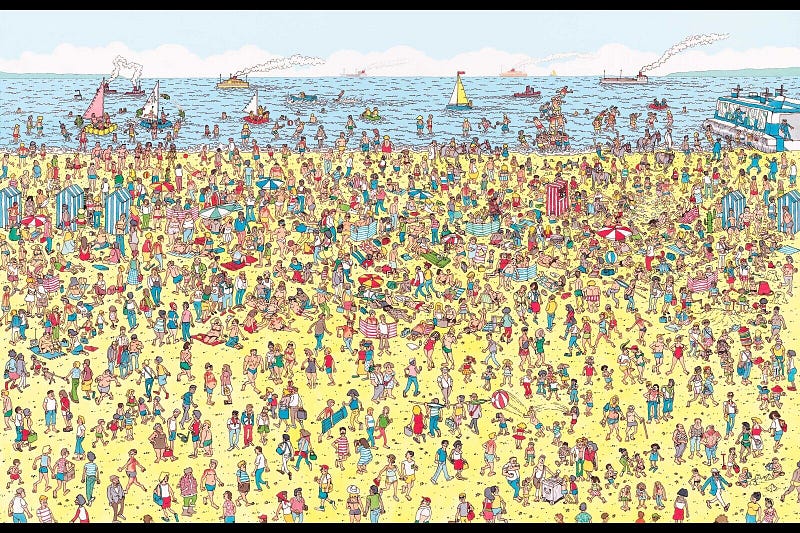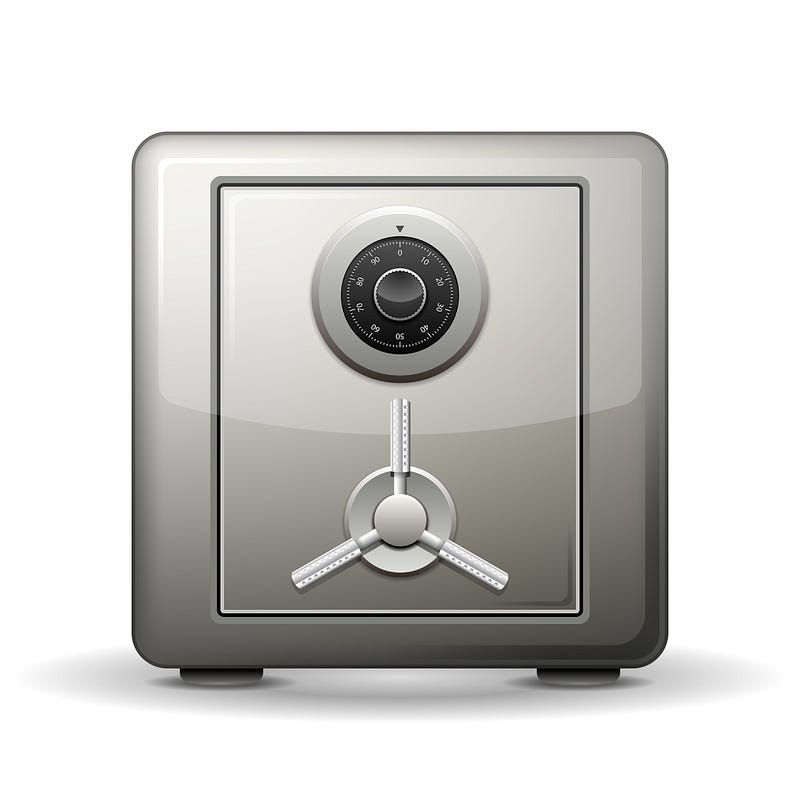Understanding Zero-Knowledge Proofs and Their Importance for Data Security
Written on
Introduction to Zero-Knowledge Proofs
Recently, Zero-Knowledge Proofs (ZKP) have gained significant attention within the crypto community. This article aims to delve into what ZKPs are, using illustrative examples, and to explore their importance in the realm of data privacy and security.
What is Zero-Knowledge Proof?
Zero-Knowledge Proof, also known as Zero-Knowledge Protocol, is a technique that allows one party to confirm knowledge of a fact without disclosing the fact itself. While this may seem counterintuitive, consider the following illustrations.
Zero-Knowledge Proof: Finding Wally

Imagine you're reading a "Where is Wally?" book with a friend. You've spotted Wally, but you want to show your friend that you know where he is without directly revealing his location. You could ask your friend to close their eyes while you cover the entire image with a large piece of paper, revealing only Wally's image through a cutout.
This scenario exemplifies Zero-Knowledge Proof, as you demonstrate your knowledge of Wally's whereabouts without disclosing the exact location in the image.
Zero-Knowledge Proof: The Safe Scenario

Consider a group sharing a safe with a password known only to its members. A stranger claims to know the password but wants to prove it without revealing it. They could write a statement on paper, place it inside the safe, and both parties can confirm the safe is locked. The stranger then states the information on the paper without revealing how they obtained it, demonstrating knowledge of the password without disclosing it.
This analogy further illustrates the essence of Zero-Knowledge Proofs, where knowledge is confirmed without revealing the sensitive information itself.
Understanding the Technical Definition
According to Wikipedia, Zero-Knowledge Proofs (ZKP) allow one party (the prover) to demonstrate to another party (the verifier) that a statement is true, without conveying any additional information apart from the statement's validity.
For a Zero-Knowledge Proof to be valid, it must meet three criteria:
- Completeness: If both parties follow the protocol, no one can deceive the other.
- Soundness: A dishonest prover cannot convince an honest verifier of a false statement.
- Zero-Knowledge: The verifier learns nothing other than the truth of the statement.
Applications of Zero-Knowledge Proofs
ZKPs can be utilized across various sectors to enhance privacy, security, and efficiency. For instance, in the context of voting and elections, ZKPs can:
- Enable voters to verify their votes were counted without revealing how they voted.
- Protect voter privacy by confirming eligibility without disclosing identities.
- Allow third parties to validate election results without accessing individual votes.
The Intersection of ZKP and GDPR
Zero-Knowledge Proofs serve as a technological tool to confirm knowledge while safeguarding underlying data. This is particularly relevant in the context of the General Data Protection Regulation (GDPR), which governs the handling of personal data in the EU.
By integrating ZKPs, organizations can minimize data exposure and enhance compliance with GDPR principles, such as data minimization. ZKPs can facilitate verification processes while preserving user privacy.
Challenges in Implementing Zero-Knowledge Proofs
While ZKPs offer significant advantages for privacy and security, their implementation can present challenges that need to be addressed for effective application.
Conclusion
This article has introduced the concept of Zero-Knowledge Proofs through various examples and highlighted their significance in enhancing data privacy. Your thoughts and feedback are welcome—let's engage in a discussion!
The first video titled "Zero Knowledge Proofs simply explained" provides a concise overview of the concept, making it easier to grasp the fundamentals.
The second video, "Zero Knowledge Proof Explained! (THIS IS THE FUTURE)," discusses the future implications of ZKPs in greater detail.
For further information, feel free to connect with me on Medium or LinkedIn.